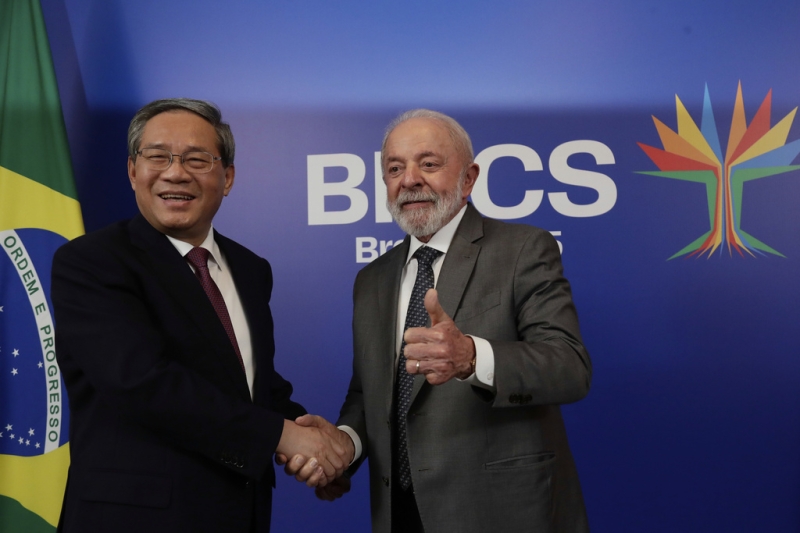- World War III to start with simultaneous Xi, Putin invasions? |
- Election delay anti-democratic, against July-August spirit |
- Bodies of 3 students recovered from two rivers in Rangpur |
- BRICS Summit Opens Amid Tensions, Trump Tariff Fears |
- Musk Launches 'America Party' in Fresh Split with Trump |
BRICS Summit Opens Amid Tensions, Trump Tariff Fears

Brazilian President Luiz Inácio Lula da Silva greets Chinese Vice President Han Zheng during the opening of the BRICS summit in Rio de Janeiro, Brazil, as the group discusses global tensions and economic cooperation.
The BRICS summit opened in Brazil on Sunday under the shadow of Middle East conflicts and growing concerns over U.S. tariff threats under former President Donald Trump. The two-day gathering in Rio de Janeiro brings together leaders or representatives from an expanded bloc of developing economies, but notable absences and geopolitical caution have shaped a muted agenda.
Key issues on the table include Israel’s recent strike on Iran, the worsening humanitarian crisis in Gaza, and the broader implications of Trump’s trade policies. However, Brazil, which currently chairs the bloc, is pushing for a low-profile, technical approach to avoid antagonising the United States.
President Luiz Inácio Lula da Silva, in his opening remarks, described the current global landscape as the “most adverse” of all BRICS summits hosted by Brazil, lamenting the collapse of multilateralism. He urged BRICS to play a stronger role in mediating global conflicts and reforming international governance structures.
“If global governance fails to reflect a multipolar 21st century, BRICS must help renovate it,” Lula said.
Chinese President Xi Jinping skipped the summit for the first time since 2012. Russian President Vladimir Putin is participating virtually, avoiding international travel due to an arrest warrant related to the war in Ukraine. Also absent are Iranian President Masoud Pezeshkian and Egypt’s Abdel-Fattah el-Sissi, raising questions about internal cohesion within the expanded group.
Observers expect a toned-down final communiqué, in contrast with last year’s summit hosted by Russia, which featured bold proposals to sidestep Western sanctions. This year, Brazil aims to keep the tone technical and consensus-driven.
“Brazil wants to minimise risks by avoiding confrontations that could provoke the Trump administration,” said analyst Ana Garcia. Trump has threatened steep tariffs if BRICS nations move to undermine the U.S. dollar, raising alarms for export-dependent countries like Brazil.
Brazil has selected six priorities for the summit: trade and investment, global health, artificial intelligence governance, climate change, peace and security, and institutional development. The expansion of BRICS — which last year admitted Iran, Egypt, Ethiopia, Indonesia, and the UAE — has prompted a focus on internal integration and streamlining coordination among members.
Despite its potential, experts say the bloc still lacks the unity needed to challenge Western dominance.
“Amid global instability, this summit could have showcased an alternative, but the internal fragmentation and absence of key leaders reflect its current limits,” said João Alfredo Nyegray, professor of international business.
Even in the face of uncertainty, the summit offers emerging economies an opportunity to strengthen ties and explore alternative economic partnerships in an increasingly volatile world. For Lula, the event is also a political breather from domestic pressures at home, including declining popularity and legislative gridlock.
The summit may also set the stage for stronger climate action ahead of COP 30, to be held later this year in the Amazonian city of Belém.

